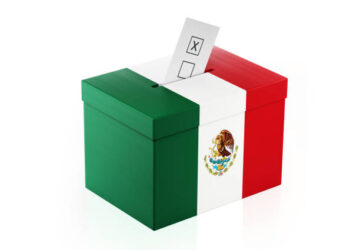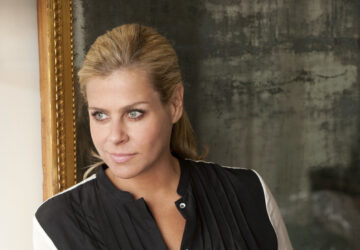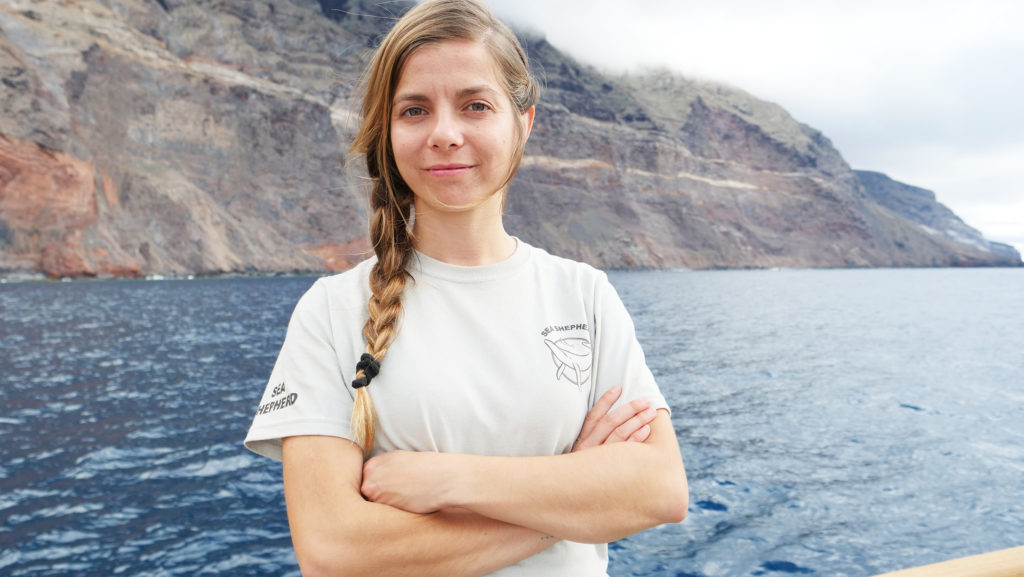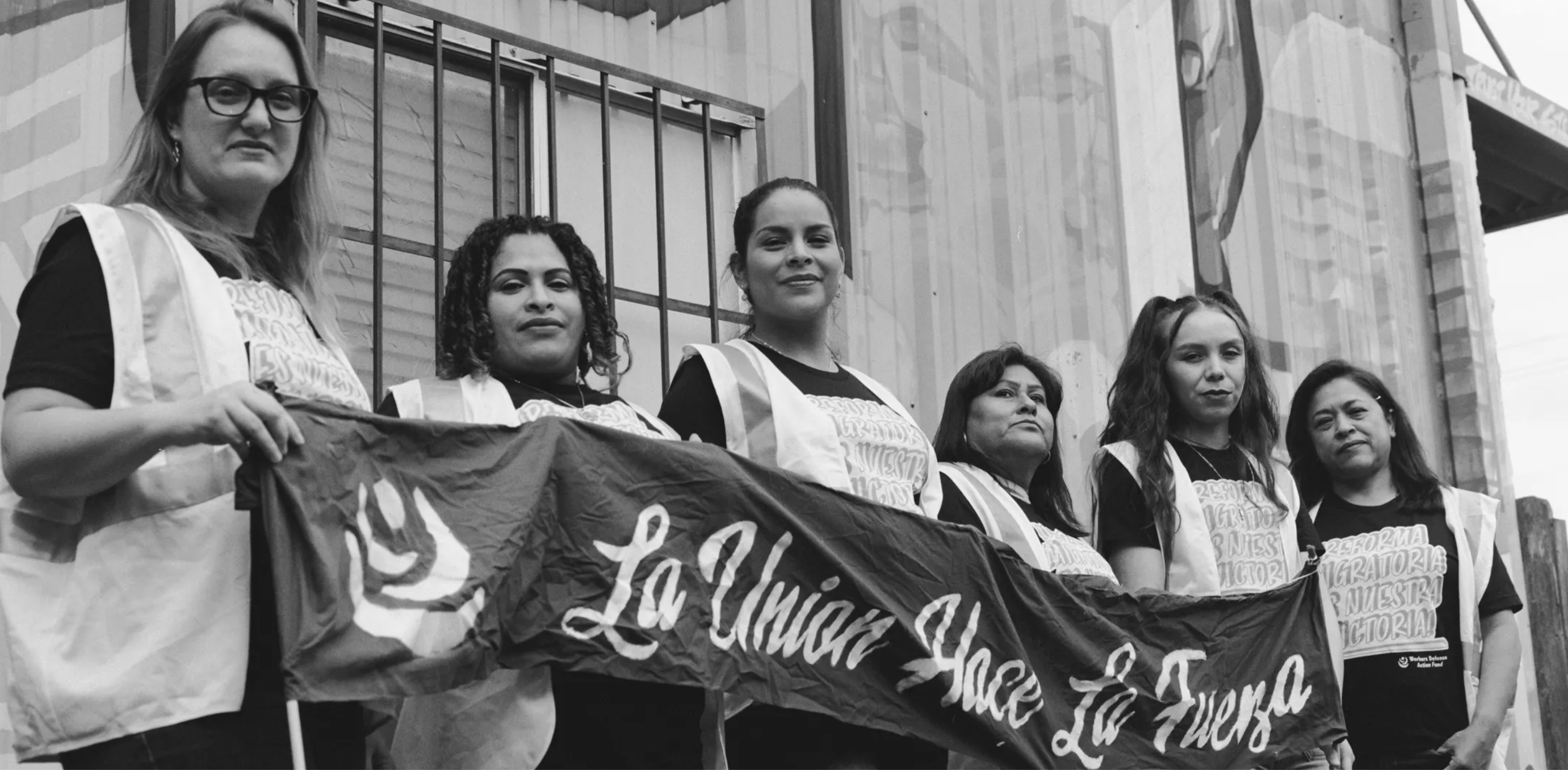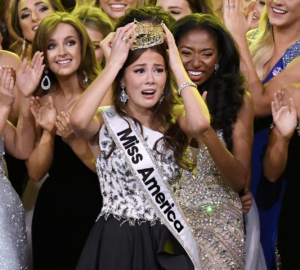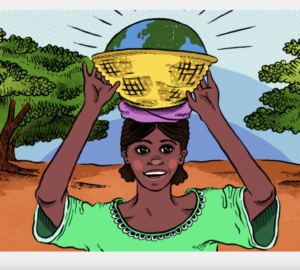3 Women Working on the Frontline of Ocean Conservation, How Latina Community Leaders Rallied Together After Austin’s Disastrous Storm & Dove Cameron Opens Up About Being Queer
Meet 3 Women Working on the Frontline of Ocean Conservation
By: Jordyn Roskind
Paul Watson, a Canadian environmentalist, established the Sea Conservation Society in 1997. The Society remains significant today, its mission to defend and protect our oceans by using direct actions. Many strong women have been involved in these efforts to help save our global oceans. Three trailblazing women are actively trying to save the marine ecosystem and are an active part of the Sea Shepherd Conservation.
Eva Hidalgo, a 31 year old Spanish scientist, helps to preserve the lives of whales in Antarctica. She is part of a team that discovered a potential new species of whales in 2020. Hidalgo has made many of her own lifestyle changes in order to minimize the impact on our oceans, such as participating in a vegan diet and reducing plastic consumption. In 2021, the main concerns of the ocean are unregulated fishing and overfishing. We need to support the creation of marine protected areas. If we do not give the marine ecosystem a chance to recover what it has lost, marine life faces the risk of not being able to survive.
Mar Casareigo is 28 years old and grew up in Spain. She has a professional background in law and human rights. Being able to understand the legal system enables her to acknowledge the level of protection oceans need and to better assist legal agencies in order to protect the oceans. Casareigo has stated that a day working with Sea Shepherd usually consists of assisting local agencies to make sure fishers are doing so legally, saving lives of endangered animals, and removing garbage from the oceans. She has participated in several projects, such as untangling a 12-meter whale from an illegal fishing net.
Lamya Essemlali is the president of Sea Shepherd France and the co-director of Sea Shepherd global. She is 42 years old and fundraises, leads campaigns, and speaks publicly about ocean issues. Lamya is currently involved in a campaign against the slaughter of pilot whales in the Faroe Islands. Many people are not aware that dolphins populate France and Lamya believes that if the French people are not aware of their responsibility for marine life, the animals will not be saved. She has also modeled lifestyle changes herself to benefit marine life. Lamya has stopped eating both fish and meat because they both have a huge impact on the ocean. 40% of the fish caught is used to feed livestock; “I can live without fish, the ocean can’t.”
These three women are working hard to protect the marine ecosystem and it is crucial for us to follow their advice on how we can save our oceans.
How Latina Community Leaders Rallied Together After Austin’s Disastrous Storm
By Haley Brettschneider
As climate change continues to ravage our planet, erratic weather patterns have been the source of heat waves and other natural disasters. Temperatures have reached record lows, most specifically this February when mass snowfall hit communities that were not prepared for this type of precipitation. Oklahoma and Texas fell victim to the harsh global effects and declared a state of emergency due to the sudden loss of electricity and water for millions.
These communities were already in crisis due to the pandemic, and the storm made things significantly more difficult. The outages had disparate effects on lower income communities as well as people of color. As poor quality infrastructure around the cities collapsed around its citizens and citizens could not get to work through the harrowing weather conditions, citizens were unable to live normally. Over 100 Texas residents died because of the storm, their fatalities attributed to hypothermia, icy roads, and carbon monoxide poisoning.
The Workers Defense Project, or the Defensa Laboral, was a crucial force in helping Texans overcome this crisis. Located in Austin, the organization assisted immigrant construction workers, allotted food and water, and helped out families who were without their usual utilities.
Local mutual aid programs have seemed to me a more efficient and effective method of helping citizens in need than the government. The work of the WDP was noticed by local officials who ended up funding their efforts. The headquarters of WDP “turned into a home base not just for our members but for the whole community around us,” said a campaign manager for the organization, Mayra Huerta.
As she looks back on the project, Huerta notes that “[WDP was} distributing thousands of gallons of water and thousands of meals per day, and sometimes hitting up to 30 apartment complexes in a day.”
Following the storm, it became clear through reports that higher income families did not suffer from the same excessive power outages that the lower income part of the state did. The disproportionate effects of recovery efforts are noted in the 2020 report from Princeton: “White communities saw higher levels of reinvestment in their communities after natural disasters in comparison to their minority counterparts.”
WDP’s work did not stop after the storm. They continue to help affected families recover from the storm, but also fight against policies that “disproportionately hurt immigrant workers in the construction industry.” SB14, a bill that threatens water breaks for construction workers, is obviously harmful in a state with summer days exceeding 100 degrees. Digna Cruz, a member of the Workers Defense Action Fund, explains: “We can’t just relax and go back to normal just because all the snow melted—we have to learn to deal with anything else that might come up.”
Dove Cameron Opens Up About Being Queer
By: Avery Heilbrunn
In an interview with Gay Times, Dove Cameron unveiled that she’s been too afraid to show her true sexuality for years, yet revealed via Instagram Live in 2020 that she was queer. She also noted that her decision to come out during this time period was also based on her lyric video for “We Belong”, as fans accused the singer of “queerbaiting” due to the video’s inclusion of LGBTQ+ couples.
As soon as Cameron started the live video, she seemed to come out nonchalantly: “Guys, I really needed to explain something to you. Maybe I haven’t said it, but I’m super queer. This is something I want to represent through my music because it’s who I am.” Cameron was finally ready to show the world her true identity and her music was a great way to express that to the public eye.
However, Cameron told Gay Times that she battled with how to come out for many years because she didn’t know how the public would react. She realized that she was expressing her true identity through her music, but was yet to come out. Her music was a sense of comfort for her which made it an easier experience to finally come out as queer.
Dove has stated many tomes that she is a “label person,” however she’s curretnly graviating towards the word queer as the most accurate word to describe herself. Dove truly emphasises that labels can be validating and affirming for some, yet also recognizes that the lack of labels can also be extremely empowering for individuals.
In the conclusion of this interview she states that she’s choosing to love herself and to be her true and unedited self. Dove Cameron has decided to show the world she will now be living authentically as herself, inspiring the young fans who look up to her.
